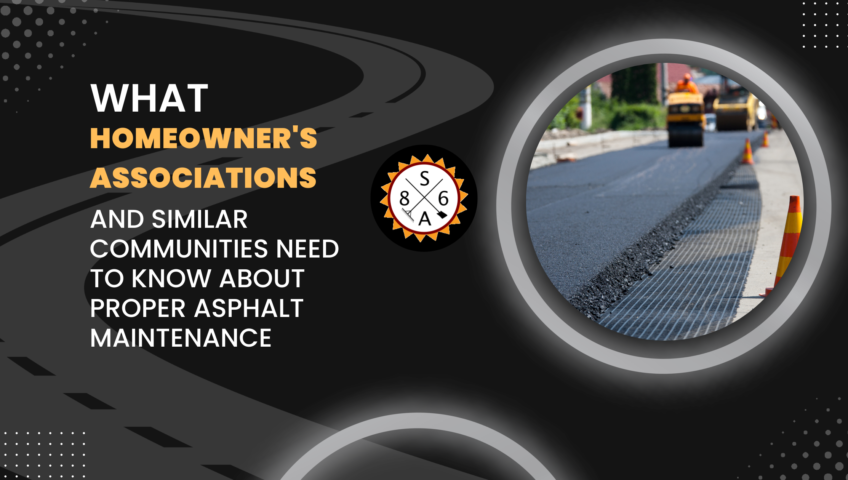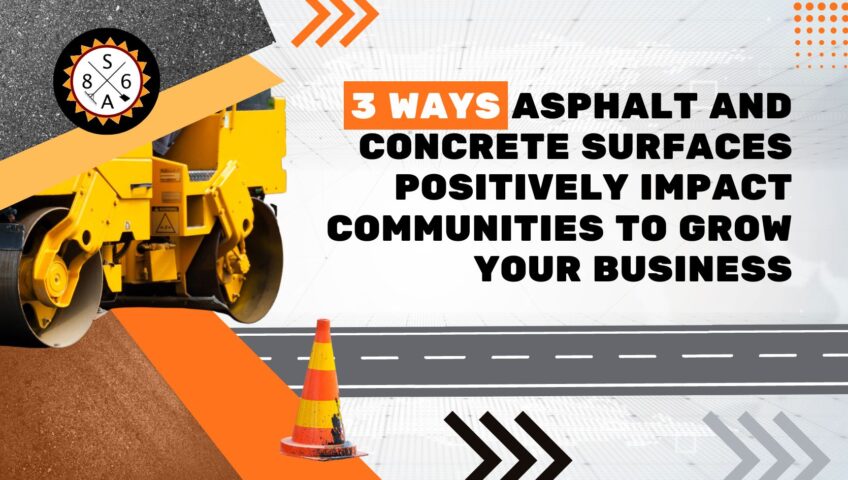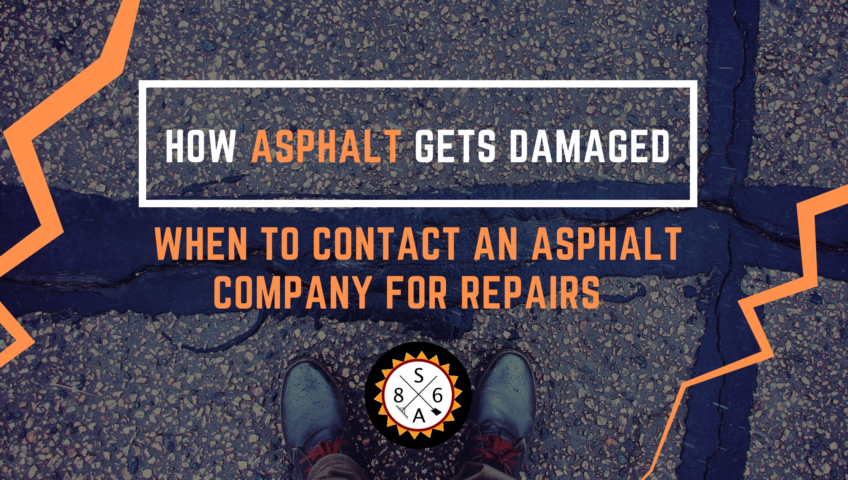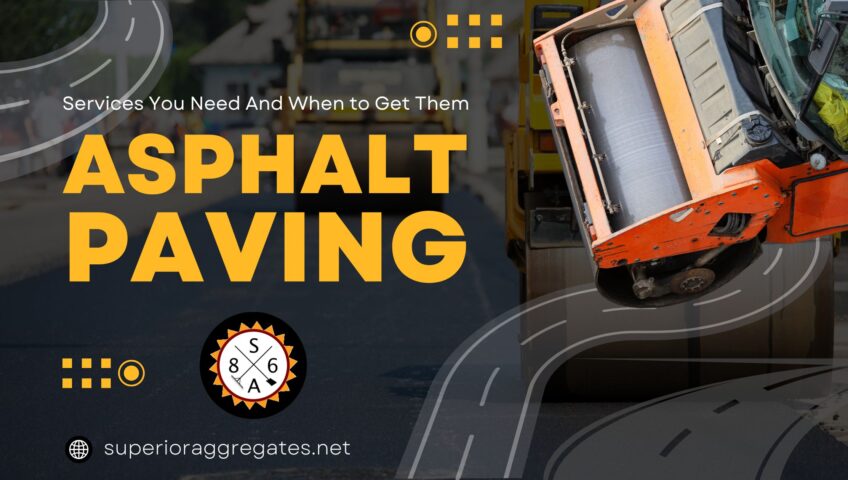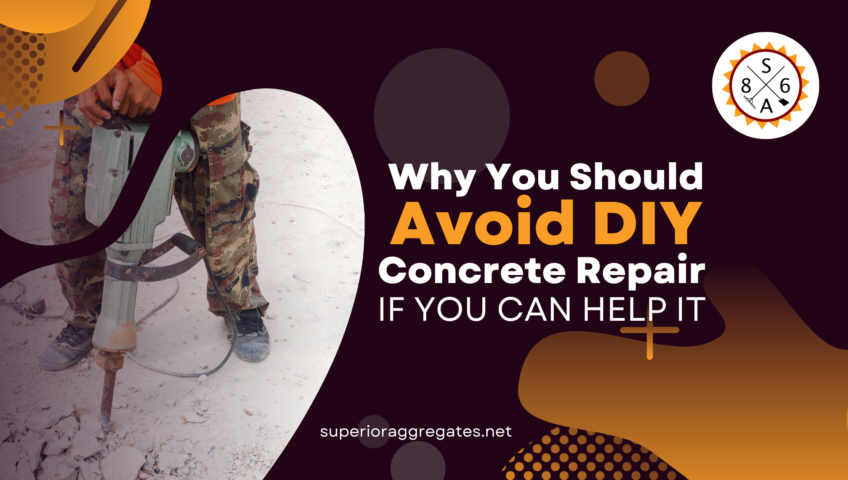
Why You Should Avoid DIY Concrete Repair If You Can Help It
Whether you’re talking about a commercial or residential property, the urge to try to fix everything yourself can often be great. You can save a lot of money by simply not hiring professionals for certain tasks and turning as much as you can into a DIY affair.
When it comes to concrete, however, there are a number of very important reasons why you should absolutely resist the urge to do this at all costs.
Knowledge is Power
Even if you consider yourself to be a particularly handy or otherwise skillful person, perhaps the number one reason why you should avoid DIY concrete repair if you can help it has to do with the fact that you likely won’t be able to assess the damage properly.
You know that a section of your concrete is developing cracks. Do you know what kind of cracks they are? Do you know why they are there in the first place? The answers to those questions will dictate how it should be remedied as far as a long-term solution is concerned.
Even if you’re able to properly assess and repair surface-level damage, you’d still be “treating the symptom instead of curing the disease,” so to speak. An underlying issue could be impacting the entirety of your concrete, but to a novice it would appear that the issue is localized to one particular area.
A team of professionals would know that this isn’t the case. They could collect as much actionable information as possible so that they can know exactly what to do next. Not only would this be a more effective solution to your current problem, but it would also prevent you from inadvertently making a problem worse as well.
The Time Factor
Next, you need to consider the fact that properly repairing and maintaining concrete isn’t as straightforward as patching a hole in some drywall. It’s incredibly time-consuming – particularly if this is the first job of this scale you’ve ever worked on.
First, most concrete-related tasks require specific tools and materials that vary depending on exactly what you need to do. If you don’t have them, you’ll need to go out and get them – an investment that you’ll probably only use once. Likewise, you’ll be spending a lot of time waiting for concrete to dry, which you won’t necessarily know how to spend in more productive ways if you’re not a professional.
In the end, while it’s absolutely true that there are a lot of jobs around the house (or around the commercial property) that you’re more than capable of handling on your own, concrete repair shouldn’t be one of them in virtually all circumstances. Yes, you might think that you can save a little money by forgoing the call to the professionals and purchasing the necessary supplies yourself. On paper, you might even be right.
But what you’re risking is a situation where you take a small problem and make it a much bigger and ultimately costlier one. If you don’t want to risk damaging things to the point where you might need to replace all the concrete and start again instead of repair it, you’ll want to pick up the phone and call a professional concrete repair service as soon as you’re able to do so.
If you’d like to find out more information about why you should always avoid DIY concrete repair if you can help it, or if you’d just like to speak tos someone about your own situation in a bit more detail, please don’t delay – contact us today.
Whether you’re talking about a commercial or residential property, the urge to try to fix everything yourself can often be great. You can save a lot of money by simply not hiring professionals for certain tasks and turning as much as you can into a DIY affair.
When it comes to concrete, however, there are a number of very important reasons why you should absolutely resist the urge to do this at all costs.
Knowledge is Power
Even if you consider yourself to be a particularly handy or otherwise skillful person, perhaps the number one reason why you should avoid DIY concrete repair if you can help it has to do with the fact that you likely won’t be able to assess the damage properly.
You know that a section of your concrete is developing cracks. Do you know what kind of cracks they are? Do you know why they are there in the first place? The answers to those questions will dictate how it should be remedied as far as a long-term solution is concerned.
Even if you’re able to properly assess and repair surface-level damage, you’d still be “treating the symptom instead of curing the disease,” so to speak. An underlying issue could be impacting the entirety of your concrete, but to a novice it would appear that the issue is localized to one particular area.
A team of professionals would know that this isn’t the case. They could collect as much actionable information as possible so that they can know exactly what to do next. Not only would this be a more effective solution to your current problem, but it would also prevent you from inadvertently making a problem worse as well.
The Time Factor
Next, you need to consider the fact that properly repairing and maintaining concrete isn’t as straightforward as patching a hole in some drywall. It’s incredibly time-consuming – particularly if this is the first job of this scale you’ve ever worked on.
First, most concrete-related tasks require specific tools and materials that vary depending on exactly what you need to do. If you don’t have them, you’ll need to go out and get them – an investment that you’ll probably only use once. Likewise, you’ll be spending a lot of time waiting for concrete to dry, which you won’t necessarily know how to spend in more productive ways if you’re not a professional.
In the end, while it’s absolutely true that there are a lot of jobs around the house (or around the commercial property) that you’re more than capable of handling on your own, concrete repair shouldn’t be one of them in virtually all circumstances. Yes, you might think that you can save a little money by forgoing the call to the professionals and purchasing the necessary supplies yourself. On paper, you might even be right.
But what you’re risking is a situation where you take a small problem and make it a much bigger and ultimately costlier one. If you don’t want to risk damaging things to the point where you might need to replace all the concrete and start again instead of repair it, you’ll want to pick up the phone and call a professional concrete repair service as soon as you’re able to do so.
If you’d like to find out more information about why you should always avoid DIY concrete repair if you can help it, or if you’d just like to speak tos someone about your own situation in a bit more detail, please don’t delay – contact us today.

